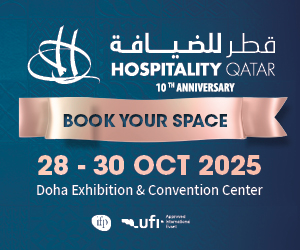Travel to the Middle East has long been tied to shopping, resorts, and fine dining. Now, the region is drawing a new kind of visitor—those seeking cosmetic dentistry in Dubai, hair transplants in Turkey and Riyadh, and high-end medispas across the Gulf. The attraction lies in a rare mix of world-class medical facilities, elite specialists, and luxury experiences that fuse personal enhancement with curated travel.
“Beauty tourism is booming, especially in Dubai,” says Samina Ghori, Deputy CEO of Kaya Clinic. “Clients come not just for quality care, but for the overall luxury experience.”
Governments are backing this shift. Saudi Arabia’s Vision 2030 positions medical and wellness tourism as core to diversification, while the UAE markets itself as a global luxury hub—where dermatology clinics sit alongside couture boutiques and Michelin-starred restaurants.
Popular procedures include injectables, skin rejuvenation, body contouring, and hair transplants. Advanced treatments—stem cell facials, regenerative therapies—are gaining ground.
Luxury as Identity
The Gulf has branded itself as a luxury-first market. “Even routine treatments are reframed as five-star journeys,” says Jitin Jaggi, MD at Circadia SAMENA. A simple peel in Dubai becomes a premium wellness ritual.
This reputation, notes Reema Bhatt of Baldan Group, elevates the entire sector: clients expect exclusivity, service excellence, and results that match the luxury context. Multilingual staff, VIP privacy, and seamless care build trust.
From Surgery to Holistic Wellness
Beauty tourism is evolving beyond surgical fixes. Clients increasingly seek holistic care—IV drips, hormone therapy, skin nutrition, and stress recovery. “It’s about long-term vitality, not just correction,” Ghori says. Devices like Infrabaldan 3.0 now blend aesthetics with metabolic health.
Economic Impact
The sector is fueling growth across healthcare and hospitality. Luxury hotels partner with skincare brands for signature treatments; tourists combine procedures with fine dining, shopping, and leisure. “It’s a strategic economic driver, not just a travel trend,” Ghori explains.
Competing on Experience
Unlike Turkey or South Korea, the Middle East does not compete on price but on exclusivity and innovation. Clinics invest in cutting-edge technologies, exclusive product lines, and five-star recovery settings.
Demand for Natural Results
Cultural preferences favor refinement over transformation. Natural-looking outcomes—skin-perfecting, anti-aging, subtle enhancements—are the most sought after.
By blending medical excellence, luxury hospitality, cultural sensitivity, and innovation, the Gulf has carved out its own premium niche in global beauty and wellness tourism.
Source: Fast Company Middle East















































































